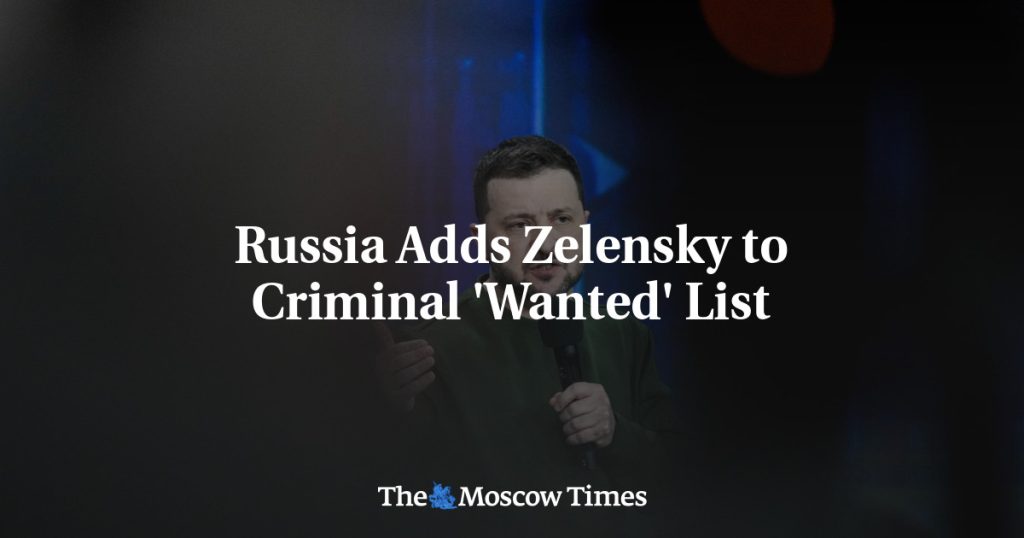Russia has added Ukrainian President Volodymyr Zelensky to its list of wanted criminals, according to an online database of alleged criminals sought by the authorities. The Ukrainian leader was wanted “under an article of the criminal code,” however, further details were not provided. This move comes as Moscow has targeted Zelensky since the start of its military offensive in February 2022. There was no immediate comment from Russian officials on the reason for adding Zelensky to the list. Zelensky has previously mentioned being aware of multiple assassination attempts against him being thwarted.
The day after sending troops into Ukraine, Russian President Vladimir Putin urged the Ukrainian army to overthrow Zelensky in an address to the nation. This further exacerbates tensions between the two countries. Russia has a history of placing foreign politicians and public figures on its wanted list, which contains tens of thousands of entries. In February, Moscow announced it was seeking Estonian Prime Minister Kaja Kallas for the “desecration of historical memory” related to the destruction of Soviet era monuments in Estonia. The International Criminal Court (ICC) also ordered the arrest of Putin on war crimes charges, specifically related to the abduction of Ukrainian children, a move that has been denied by Moscow.
The addition of Zelensky to Russia’s wanted list reflects the deteriorating relationship between Russia and Ukraine, as well as the ongoing military conflict in the region. This move by Moscow further escalates tensions and raises concerns about the safety and security of Zelensky. The targeting of foreign leaders and public figures by Russia adds a new dimension to its international relations, creating further diplomatic challenges for the countries involved. The accusations and charges against Zelensky and other foreign individuals highlight the complex geopolitical landscape in the region.
The actions taken by Russia in relation to Zelensky and other foreign figures indicate its aggressive and assertive foreign policy approach. The use of wanted lists and accusations of criminal activity against foreign leaders serve as tools to achieve political objectives and assert dominance on the international stage. This behavior by Russia has drawn criticism from the international community and raised concerns about its tactics and motivations. The addition of Zelensky to the wanted list is seen as a further attempt by Moscow to discredit and undermine the Ukrainian government.
The ongoing conflict between Russia and Ukraine, as well as the involvement of other foreign figures in the region, poses a significant challenge to international peace and security. The escalation of tensions and the targeting of foreign leaders for political reasons contribute to a volatile situation in the region. The actions taken by Russia have wider implications for global stability and raise questions about the future of international relations. The addition of Zelensky to the wanted list is just one example of the complex and multifaceted issues that are currently facing the international community.
In conclusion, the addition of Ukrainian President Volodymyr Zelensky to Russia’s wanted list underscores the deepening divide between the two countries and highlights the complex geopolitical dynamics at play in the region. The accusations and targeting of foreign figures by Moscow reflect its aggressive approach to foreign policy and have significant implications for international relations. The situation between Russia and Ukraine remains tense and volatile, with the involvement of other foreign leaders adding further complexity to the ongoing conflict. As the situation continues to evolve, it is essential for the international community to closely monitor developments and work towards a path to de-escalation and resolution in the region.


